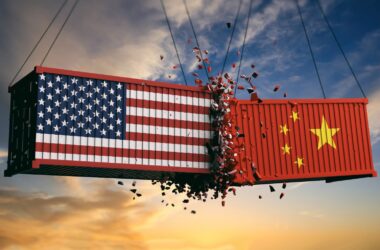Indian Prime Minister Narendra Modi is reportedly set to meet Tesla and SpaceX CEO Elon Musk during his anticipated visit to the United States next week, according to a report by CNBC TV18. The visit, which is taking place at the invitation of President Donald Trump, is expected to involve high-level discussions on investment, technology, and space cooperation.
Musk, who was recently appointed co-head of the Department of Government Efficiency (DOGE), is expected to be among a select group of CEOs scheduled to engage with Modi on February 13. While official confirmation is still pending, the meeting is likely to focus on key areas such as Tesla’s investment plans in India, Starlink’s operations, and enhanced collaboration between SpaceX and the Indian Space Research Organization (ISRO).
A Strong Foundation: Modi and Musk’s Past Engagements
This is not the first time Modi and Musk have engaged in discussions regarding investment and technology cooperation. The Indian Prime Minister met Musk in 2023 during his visit to the United States, where they discussed Tesla’s potential entry into the Indian market and the broader vision for electric mobility in the country.
Musk had initially planned a visit to India in 2024 to announce key developments regarding Tesla’s operations. However, citing “very heavy Tesla obligations,” he postponed the trip, leading to speculation about the status of Tesla’s investment plans in India. Bloomberg later reported that New Delhi was aware of Tesla’s financial constraints at the time and was not expecting any immediate commitments.
Despite these delays, India has actively worked to make itself an attractive destination for electric vehicle (EV) manufacturers. In 2024, the Indian government introduced a new policy aimed at attracting foreign EV makers by offering import duty concessions to companies willing to invest a minimum of $500 million in local manufacturing. Previously, imported cars valued at over $40,000 faced a 100% customs tax, while those priced under $40,000 incurred a 70% import duty. Many industry experts view this policy shift as a direct response to Tesla’s lobbying efforts.
Starlink’s Prospects in India
Another key topic expected in the Modi-Musk discussions is the approval of Starlink’s operations in India. In November 2024, India’s telecommunications minister confirmed that Musk’s company was seeking security clearance to provide satellite broadband services in the country.
Starlink, a satellite internet service operated by SpaceX, aims to bridge the digital divide by providing high-speed internet access to rural and remote areas. Given India’s vast geography and the challenges associated with last-mile connectivity, Starlink’s entry into the Indian market could be a game-changer, particularly in regions that lack reliable terrestrial broadband infrastructure.
However, the project has not been without its challenges. Indian authorities have previously scrutinized Starlink over regulatory and security concerns. Additionally, recent reports suggest that Indian law enforcement agencies are investigating Starlink’s alleged involvement in facilitating communication networks for illicit activities, including drug smuggling. Despite these hurdles, a meeting between Modi and Musk could pave the way for Starlink’s long-awaited approval in India.
Geopolitical and Economic Implications
Beyond business considerations, the Modi-Musk engagement carries significant geopolitical implications. India is currently positioning itself as a major player in global technology and innovation, with a focus on reducing dependence on China for critical technologies, including EVs and semiconductor supply chains.
China has been a crucial market for Tesla, accounting for approximately 33% of its total car sales in 2023. However, with Donald Trump’s return to the White House, the geopolitical landscape is shifting. The new U.S. administration has imposed additional tariffs on Chinese goods, including a 10% blanket tariff on all Chinese imports. This move could disrupt Tesla’s supply chains and push the company to diversify its manufacturing base beyond China.
India, with its large market, skilled workforce, and government incentives for EV and semiconductor manufacturing, presents itself as a viable alternative. The Modi government has been actively promoting the “Make in India” initiative, encouraging global companies to set up production facilities within the country. Tesla’s potential investment in India aligns with this vision and could help India emerge as a key hub for EV production in the coming years.
Additionally, strengthening ties with SpaceX would further India’s ambitions in space exploration. ISRO has made significant strides in recent years, with successful missions such as Chandrayaan-3 and the Aditya-L1 solar mission. A closer collaboration with SpaceX could enhance India’s capabilities in satellite deployment, deep-space exploration, and commercial space ventures.
Future Prospects for Modi-Musk Collaboration
Looking ahead, there are several areas where Modi and Musk’s cooperation could yield significant benefits:
Electric Vehicle Manufacturing. With India offering a favorable policy environment for EV makers, Tesla’s entry could drive local manufacturing, create jobs, and boost the adoption of sustainable transportation in India.
Satellite Internet Expansion. Starlink’s approval would revolutionize internet connectivity in rural India, supporting digital inclusion and economic growth in remote regions.
Space Collaboration. Strengthening SpaceX-ISRO ties could open new opportunities for joint missions, commercial satellite launches, and advancements in reusable rocket technology.
AI and Renewable Energy Investments. Musk’s interests in artificial intelligence and renewable energy align with India’s push for AI-driven innovation and its commitment to expanding solar and wind energy capacities.
The upcoming Modi-Musk meeting could mark a new chapter in India’s technological and economic landscape. If Tesla and Starlink secure a foothold in India, it would not only bring significant investment but also position India as a global leader in emerging technologies.
Geopolitically, the move strengthens India’s position as a strategic partner for the U.S. and Western economies, reducing dependence on China for critical sectors. As Modi and Musk engage in discussions, the outcomes of their meeting could shape the future of India’s role in the global tech ecosystem and reinforce the country’s position as a hub for innovation and investment.
With India’s economy on the rise and Musk’s ventures continuously pushing the boundaries of technology, a strengthened partnership between the two could redefine the future of electric mobility, space exploration, and digital connectivity.




